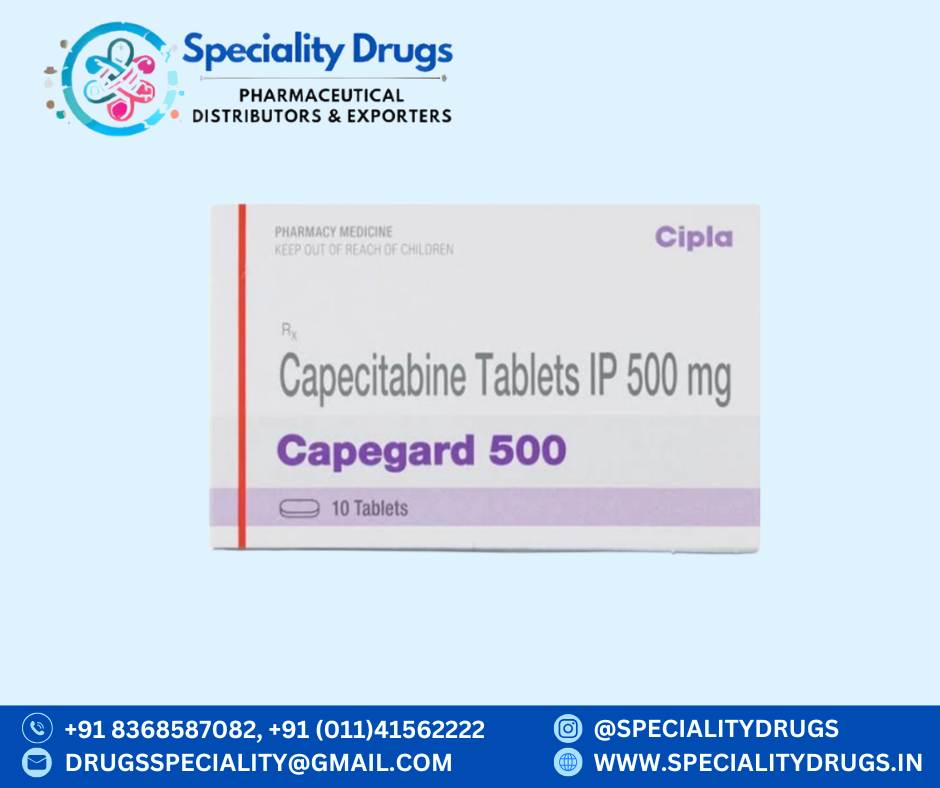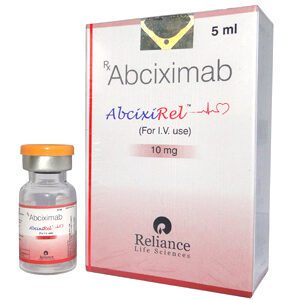What is CAPEGARD 500MG?
CAPEGARD 500MG contains Capecitabine as its active ingredient. It is an oral chemotherapy medicine used to treat certain types of cancer, including breast and colorectal cancer. It belongs to a class of medicines known as antimetabolites, which work by interfering with the growth of cancer cells and slowing their spread in the body.
What is the use of CAPEGARD 500MG?
-
Treatment of metastatic breast cancer
-
Treatment of colorectal cancer (colon or rectal cancer)
-
Used as adjuvant therapy after surgery to reduce the risk of cancer recurrence
-
Sometimes prescribed in combination with other chemotherapy medicines
Benefits of CAPEGARD 500MG
-
Effective oral chemotherapy – eliminates the need for hospital-based IV therapy
-
Can target and slow the growth of cancer cells
-
Helps improve survival rates in certain cancers
-
May shrink tumor size before surgery or prevent recurrence after treatment
Side effects of CAPEGARD 500MG
Like all medicines, CAPEGARD 500MG may cause some side effects. Common side effects include:
-
Diarrhea
-
Nausea and vomiting
-
Loss of appetite
-
Fatigue or weakness
-
Hand-foot syndrome (redness, swelling, or pain on palms/soles)
-
Mouth sores
-
Low blood cell counts
Seek immediate medical help if you experience:
-
Severe allergic reaction
-
Persistent vomiting/diarrhea
-
Chest pain
-
Severe fatigue or bleeding
What is CAPEGARD 500MG used for?
CAPEGARD 500MG is used to treat certain cancers such as breast cancer and colorectal (colon or rectal) cancer.
2. What is the active ingredient in CAPEGARD 500MG?
The active ingredient is Capecitabine, an oral chemotherapy drug.
3. How does CAPEGARD 500MG work?
It works by converting into 5-fluorouracil (5-FU) in the body, which blocks the growth of cancer cells and slows their spread.
4. How should I take CAPEGARD 500MG?
It is usually taken within 30 minutes after a meal, exactly as prescribed by your doctor.
5. Can I take CAPEGARD 500MG at home?
Yes, it is an oral chemotherapy tablet, but it should be taken only under the supervision of an oncologist.
6. What are the common side effects of CAPEGARD 500MG?
Common side effects include diarrhea, nausea, fatigue, hand-foot syndrome, and loss of appetite.
7. Is CAPEGARD 500MG safe during pregnancy?
No, it should not be used during pregnancy as it can harm the unborn baby.
8. Can breastfeeding mothers take CAPEGARD 500MG?
No, it is not recommended during breastfeeding because it may pass into breast milk and harm the baby.
9. What should I do if I miss a dose of CAPEGARD 500MG?
Take the missed dose as soon as possible unless it’s almost time for your next dose. Do not double the dose.
10. Can I drink alcohol while taking CAPEGARD 500MG?
Alcohol should be avoided as it may worsen certain side effects like nausea or liver strain.
11. Are there any serious side effects I should watch out for?
Yes, such as severe diarrhea, chest pain, persistent vomiting, unusual bleeding, or signs of infection.
12. Can CAPEGARD 500MG be taken with other medicines?
Some medicines may interact with Capecitabine. Always inform your doctor about all medicines you are taking.
13. How long will I need to take CAPEGARD 500MG?
Treatment duration depends on your type of cancer, stage, and your doctor’s recommendation.
14. How should CAPEGARD 500MG be stored?
Store it in a cool, dry place away from direct sunlight and moisture. Keep it out of reach of children.
15. Is CAPEGARD 500MG a cure for cancer?
It is not a guaranteed cure, but it is an effective treatment that can help control and manage cancer.






Reviews
There are no reviews yet.